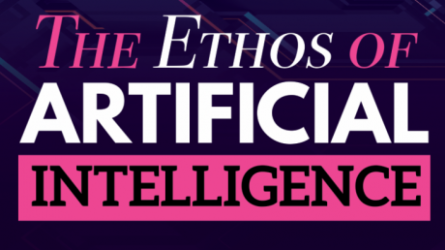Imagine this scenario:
In the wake of coordinated barrage of AI-powered cyberattacks by an authoritarian regime, a democratic country, ‘inoculated’ against such threats through public education and a set previously implemented system upgrades, calmly ignores the attempts to destabilize it. Undeterred, the authoritarian regime redoubles its efforts during a subsequent election cycle whose outcome will signify the country’s commitment to democracy. The candidate who is most aligned with democratic values is elected, and democracy prevails.
This is not a future fantasy. This already happened in Taiwan.
In our book, we argue that the market forces at play in the deployment of AI in the United States did not make allowances for a proper or measured approach to educating the public, which should have proceeded the release of AI into the public domain. This lack of wisdom and foresight—both on the part of tech companies and the U.S. government—could have catastrophic implications in a future where disinformation is cranked up due to AI. What happens if U.S. citizens, who are unable to distinguish true from false or up from down due to a coordinated AI cyberattack, panic?
Audrey Tang, Taiwan’s first Minister of Digital Affairs of Taiwan, has been implementing the following upgrades to future-proof democracy since her tenure began in 2022:
Verified phone numbers in the form of short codes: All information issued via SMS from the Taiwanese government comes from 111. Utility companies, banks, and other public agencies are adopting their own incorruptible short codes so that citizens know what information is coming from a verified source and what is not.
Prebunking: Prebunking operates on the theory that if you understand how misinformation can manipulate you before you see it, you are less likely to believe it. In 2022, prior to the broad release of generative AI, Tang filmed a deepfake video of herself on a MacBook to demonstrate how easy it was to create a deepfake with AI software. Because ‘inoculating’ citizens takes time, this video was routinely broadcast to the public. Through prebunking, citizens learn not to trust a video just because it features a high-ranking government official or a celebrity.
The implementation of multiple back-up systems. This offensive move presupposes that hacking will be attempted and provides protection in the wake of an actual attack.
Using paper ballots for elections: By issuing paper ballots, and allowing citizens to use their own video to verify all the counting in polling places, the outcome of an election is indisputable (Harris & Raskin, 2024).
Tang is also implementing a range of other upgrades to facilitate participatory democracy. One such example is the Polis platform, which is used to crowdsource consensus on initially contentious public issues. According to Tang, Polis is ‘Pro-Social Media’ that uses AI to consistently promote common points of view to bridge divides. Participants and opinions are visualized on the same page, as well as how divided the groups are. Polis does not just provide a visual mapping of democratic input, it also produces an interactive report, updated in real time (Tang et al, 2023).
Should we be following Taiwan’s lead to future-proof democracy in the United States? Is it too late to implement these upgrades? Participate in the discussion below.
Sources:
Harris, T. & Raskin, A. (2024, February 29). Future-proofing democracy in the age of AI. [Audio podcast episode]. In Your Undivided Attention. Center for Humane Technology.
Tang, A., Liu, R., & Hsueh, W. (2023, September 15). Digital democracy in the age of AI. PDIS.
